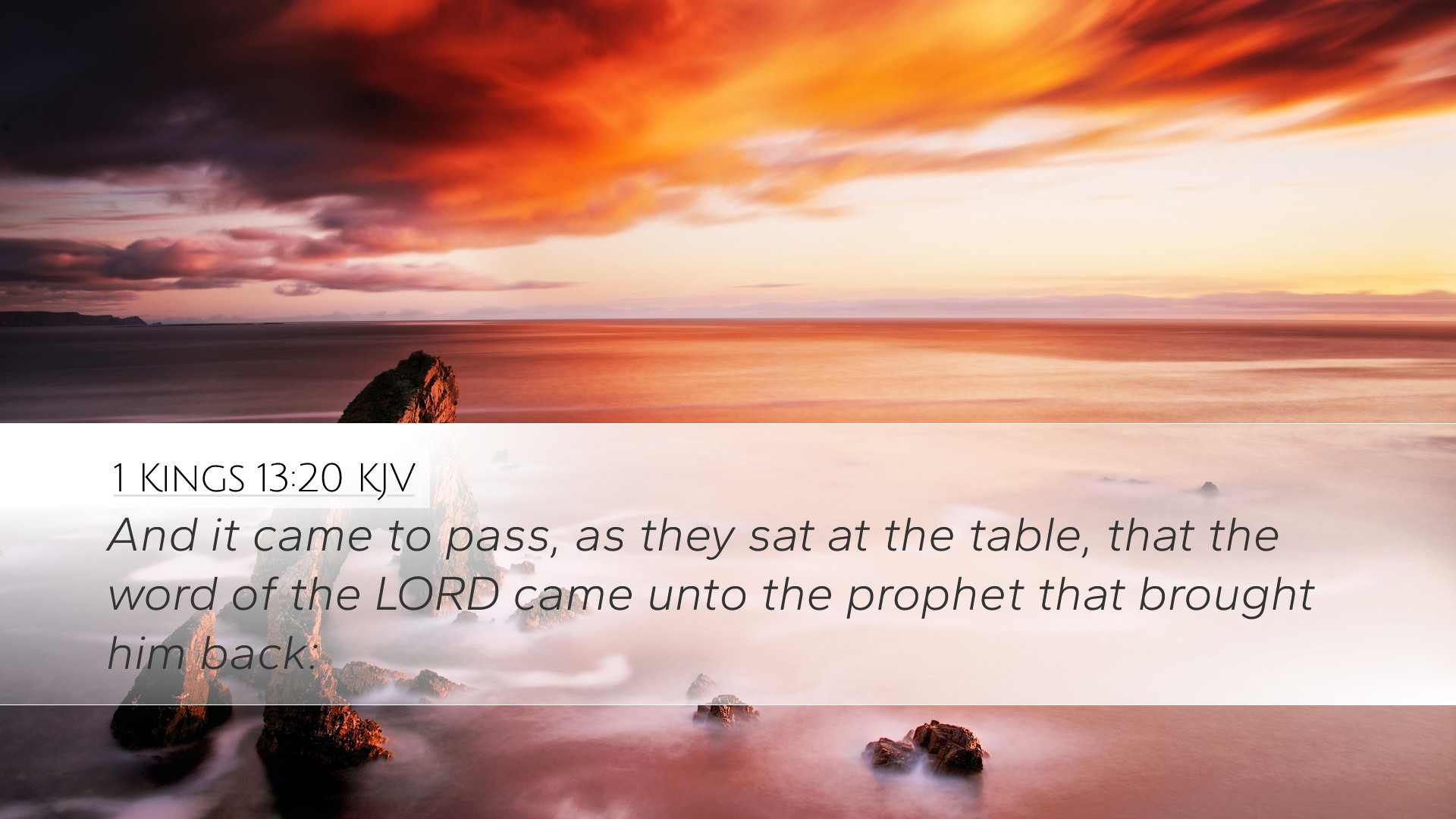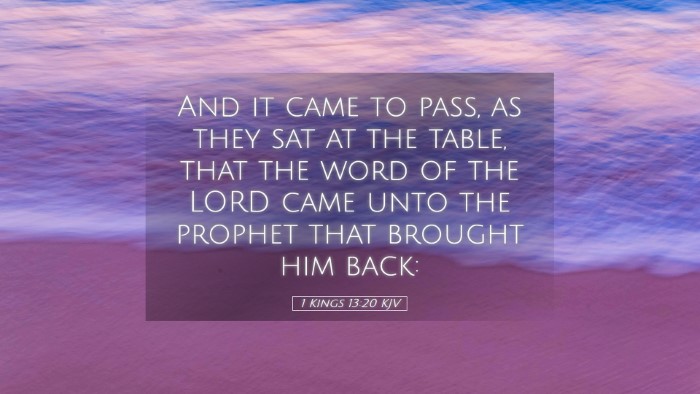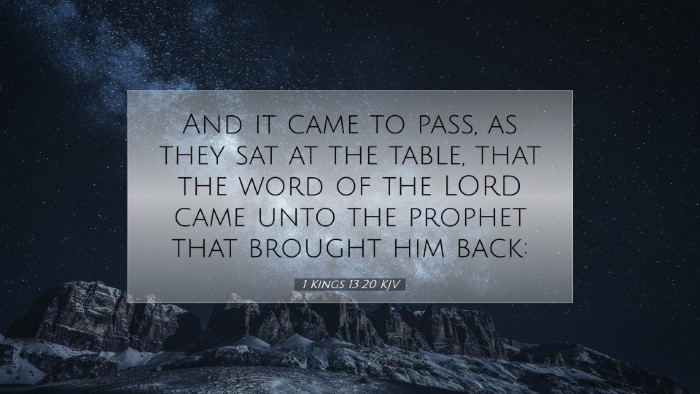Commentary on 1 Kings 13:20
Verse Context: The context of 1 Kings 13 describes the prophetic ministry during the reign of King Jeroboam of Israel. The prophet from Judah is sent by God to deliver a critical message against idolatry and the worship practices established in Bethel. However, within this account lies a cautionary tale of disobedience and the consequences that follow.
Analysis of 1 Kings 13:20
In this verse, we witness a pivotal moment where a prophet's actions lead to dire consequences. The profound implications of this passage merit careful examination.
Matthew Henry's Insights
Matthew Henry emphasizes the weight of disobedience to divine instruction. In his commentary, he notes:
- Henry points out that the prophet had previously received a clear command from God (1 Kings 13:9) to neither eat nor drink in the place where he was sent.
- The failure to adhere to this command illustrates the danger of external influences and the necessity of maintaining fidelity to God's directives.
- Moreover, Henry suggests that the sin of the prophet is twofold; he was not only disobedient himself but also allowed the old prophet to sway him from his divine mission.
Albert Barnes' Commentary
Albert Barnes provides an analytical perspective on the events in this chapter:
- Barnes highlights the old prophet's deceit as a pivotal moment that leads to the judgment of the young prophet, examining the manipulation that comes from falsehood.
- He further discusses the implications of prophetic authority and warns pastors and students of the potential consequences of failing to discern true from false guidance.
- Barnes notes how the narrative serves as a stark reminder of the immediate repercussions that can arise from disobedience to God’s words, underlining that God's command is paramount over all human counsel.
Adam Clarke's Explorations
Adam Clarke offers a detailed dissection of the theological implications at play:
- Clarke remarks on the significance of personal integrity and the responsibility resting on those who bear the prophetic office. He contends that the young prophet's failure serves as a warning to others in similar positions.
- He delves into the theology of prophecy, exploring how covenant relationships with God are maintained through obedience and faithfulness. The young prophet's lapse into disobedience is thus seen as a break in this covenant.
- Furthermore, Clarke stresses the importance of spiritual discernment, noting that human wisdom can often lead one astray from divine instruction.
Theological Implications
This verse and the events surrounding it provide immeasurable insight into the nature of prophetic ministry, human fallibility, and divine judgment.
- Obedience to Divine Instruction: The young prophet’s tragedy underscores the necessity of obedience to God's directives, illustrating that divine instruction must not be taken lightly.
- Accountability: This passage raises critical issues regarding accountability in ministry—both to God and to fellow believers.
- Discernment and Influence: Followers of Christ are warned about the need for discernment in the face of human counsel that contradicts God’s word.
- Consequences of Disobedience: The consequences faced by the young prophet serve as sobering reminders of God's holiness and the seriousness of His commands.
Application for Today's Church
1 Kings 13:20 challenges the contemporary church, calling pastors, scholars, and laypersons alike to a higher standard of faithfulness.
- Upholding Integrity: Ministers and leaders should strive for unwavering integrity, ensuring that their actions align with God's will.
- Commitment to Scripture: The church must prioritize sound biblical doctrine, remaining steadfast against contemporary pressures that may lead to compromise.
- Encouraging Discernment: Believers are encouraged to cultivate an atmosphere where discernment is valued, allowing for healthy dialogue and guidance based on Scripture.
- Sensitivity to the Holy Spirit: The narrative reminds the church of the necessity of sensitivity to the Holy Spirit's guidance in all decisions.
Conclusion
In reflecting upon 1 Kings 13:20, the church is urged to consider the prophetic legacy and the consequences of disobedience to God’s commands. The insights from Matthew Henry, Albert Barnes, and Adam Clarke provide depth to our understanding of this passage—a reminder that faithfulness in ministry requires a continuous commitment to God’s truth, discernment amidst the voices of the world, and a humble response to divine authority.


